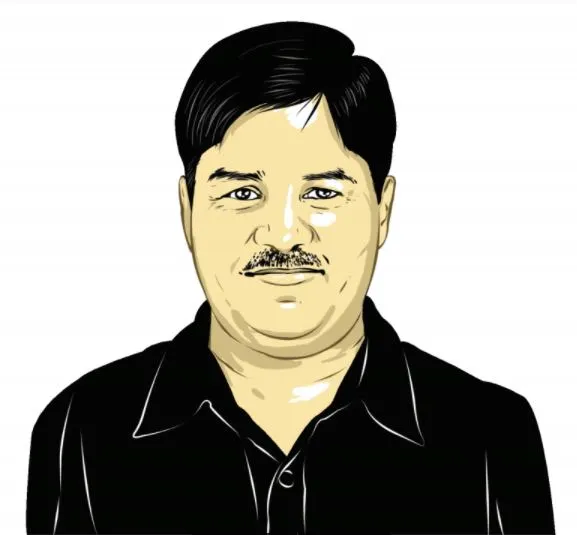Opinion When Nehru picked Opposition leader as Deputy Speaker
Hukam Singh was, however, very critical of Nehru. He is quoted as having said, "Pandit Nehru is, to say the least, the spearhead of militant Hindu chauvinism who glibly talks about nationalism, a tyrant who eulogises democracy and a Goblian liar...”
 Sardar Hukam Singh’s name was proposed by Nehru. (File Photos)
Sardar Hukam Singh’s name was proposed by Nehru. (File Photos) The Supreme Court last month issued notices to the Centre and five states including UP over the failure to elect a Deputy Speaker. A Bench led by Chief Justice of India (CJI) D Y Chandrachud sought responses on a PIL that contends that not electing a Deputy Speaker to the 17th (present) Lok Sabha, which was constituted on June 19, 2019, is “against the letter and spirit of the Constitution”.
It was Pandit Jawaharlal Nehru who, in March 1956, first came up with the idea of electing an Opposition member as Deputy Speaker when Sardar Hukam Singh, one of the only two members of the Shiromani Akali Dal (SAD), was unanimously elected to the post.
Those were the days when the Indian National Congress enjoyed vast majority, with 364 of the 489 seats in the Lok Sabha from the ruling party.
In fact, on February 27, 1956, then Speaker GV Mavalankar had died and the Deputy Speaker at that time, the Congress’s M A Ayyangar, was elected Speaker. That is how on March 20, 1956, Sardar Hukam Singh, MP from Kapurthala Bhatinda seat and president of SAD in the early 1950s, was elected Deputy Speaker of Lok Sabha. His name was proposed by Nehru and seconded by Minister of Parliamentary Affairs S N Sinha.
It’s another matter that most of the Opposition members walked out during the election process alleging procedural issues — that they were not consulted on the elevation.
SAD had two members in the first Lok Sabha — Lal Singh from Ferozpore Ludhiana and Hukam Singh from Kapurthala Bathinda. Lok Sabha debates show that when Nehru proposed Hukam Singh’s candidature, Opposition members were not happy.
Once the election process of over, Nehru said, “We believe that in the selection of the Speaker or the Deputy Speaker, wherever possible, and to whatever extent possible, consultation should take place with representative Members of the House and of the parties. Yesterday it was suggested to me that I should withdraw it, and that another motion [for proposing Hukam Singh] might be put in, that is, a proposal by me seconded by an honourable Member opposite. I had no objection to that. But since this motion had already come in the Order Paper, I did not think it proper to suggest that I should take your permission to withdraw it, and go through this tortuous procedure.”
It shows that Opposition’s one objection was that how the name of Hukam Singh should be proposed for the post.
After the election, Hukam Singh said, “I consulted some of my friends here. I am saying it on the floor of the House. I told them that the Government was proposing to take someone out of the Opposition [for the post of Deputy Speaker].
If they had any Member to offer or if they could get it, I could stand out; I was not anxious for that. It is all the more, what shall I say, creditable — or what better term can I use for the Government — that I had never gone to anybody, I had never requested any high dignitary, and it has come to me unasked for.” He further stated, “If I fail, that experiment fails and perhaps no Opposition Member might ever be selected for this post in future. If I succeed, perhaps I would have done them service and carried their cause further”.
However, Hukam Singh was very critical of Nehru before that. Mark Tully and Satish Jacob have in their book, Amritsar: Mrs Gandhi’s Last Battle, quoted from an article of Hukam Singh published in 1952 in which he says, “Pandit Nehru is, to say the least, the spearhead of militant Hindu chauvinism who glibly talks about nationalism, a tyrant who eulogises democracy and a Goblian liar – in short, a political cheat, deceiver and double dealer in the services of Indian reaction”.
Interestingly, Hukam Singh joined the Congress by the next election, in 1957, and continued as Deputy Speaker after winning from Bathinda. In 1962, he was elected from Patiala seat on a Congress ticket and was elected Speaker of Lok Sabha. He remained with the Congress and, after a stint as Governor of Rajasthan during 1967-73, he died in 1983. He was the first Sikh Speaker of Lok Sabha and of course, the first Sikh Deputy Speaker, too. When he passed away in a Delhi hospital, standing by his bedside was Giani Zail Singh, the first Sikh President of India.
The Hukam Singh experiment in Lok Sabha was followed up in the UP Assembly during Dr Sampurnanand’s term when, in the second Assembly in May 1957, Socialist leader Ram Narain Tripathi was elected to the post. In a moment of bipartisanship almost unthinkable in present times, both the Congress-led state government and the Opposition arrived at a consensus.
While Tripathi, Narayan Datt Tiwari, Genda Singh, and Independent MLA Krishndutt Paliwal filed nominations for the Deputy Speaker post, later, all others withdrew and Tripathi, a Socialist leader from Ambedkar Nagar (then in Faizabad), was unanimously elected.






